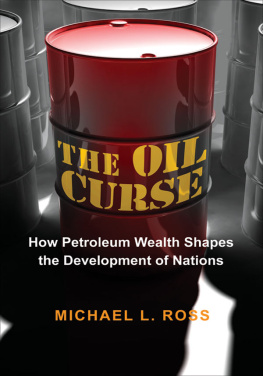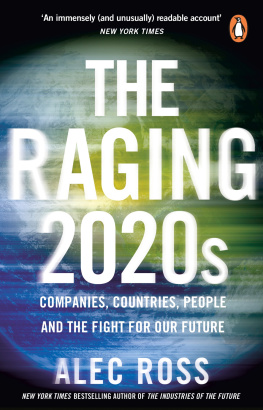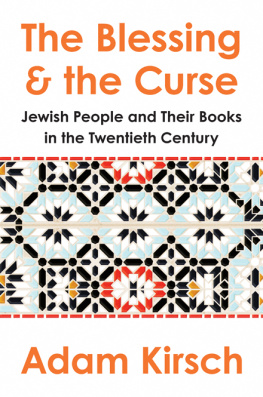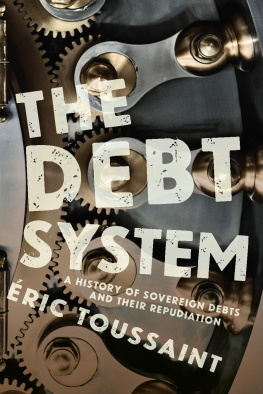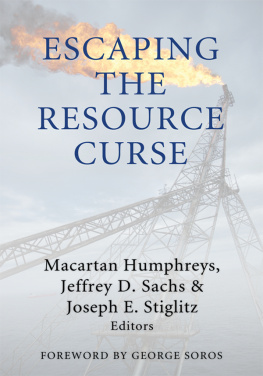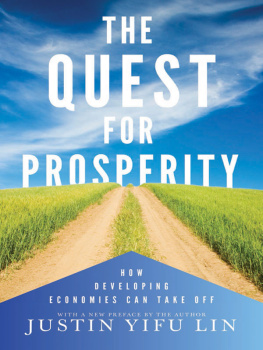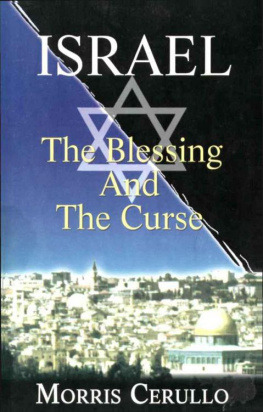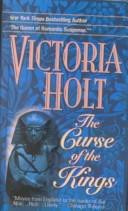The Oil Curse
The Oil Curse
HOW PETROLEUM WEALTH SHAPES THE DEVELOPMENT OF NATIONS
Michael L. Ross
PRINCETON UNIVERSITY PRESS
PRINCETON AND OXFORD
Copyright 2012 by Princeton University Press
Published by Princeton University Press, 41 William Street, Princeton, New Jersey 08540 In the United Kingdom: Princeton University Press, 6 Oxford Street, Woodstock,
Oxfordshire OX20 1TW
press.princeton.edu
All Rights Reserved
Library of Congress Cataloging-in-Publication Data
Ross, Michael, 1961
The oil curse : how petroleum wealth shapes the development of nations / Michael L. Ross.
p. cm.
Includes bibliographical references and index.
ISBN 978-0-691-14545-7 (hardback)
1. Petroleum industry and tradeGovernment policyDeveloping countries. 2. RevenueDeveloping countries. 3. Petroleum productsPrices. 4. Developing countriesEconomic policy. 5. WomenDeveloping countriesSocial conditions. 6. Natural resourcesDeveloping countries. 7. Civil warDeveloping countries. I. Title.
HD9578.D44R67 2012
338.90091724dc23
2011021743
British Library Cataloging-in-Publication Data is available
This book has been composed in Palatino LT Std by Achorn International, Inc. Printed on acid-free paper.
Printed in the United States of America
10 9 8 7 6 5 4 3 2 1
For Tina
Contents
Foreign direct investment in extractive industries, 2007
The number and income of oil-producing states, 19602006
Incomes of new oil producers, 18572015
Size of the Nigerian government, 19501984
Oil and the size of government
Government size in selected oil and non-oil states
Petroleum in the economy and government, 2007
Oil prices and oil rents in selected countries, 2008
Government expropriation of oil companies, 19601993
Capital-to-labor ratios in major industries
Price of a barrel of oil, 18612009
US petroleum production and consumption, 19472007
Proved oil reserves, 2005
Government revenues in Iran and Egypt, 19702009
Number of democracies and autocracies, 19602008
Oil and transitions to democracy, 19602006
Number of oil-producing democracies and autocracies, 19602008
Democracy levels over time, 19602004
Government spending-to-revenue ratios in autocracies, 19702008
Oil income and gasoline prices, 2006
Oil and budget transparency in autocracies, 2008
Oil and democracy in the USSR and Russia, 19602007
How oil production can affect the status of women
Women in the labor force by region, 19932002
Women in parliament by region, 2002
Oil and female labor force participation in the Middle East, 19932002
Oil and female suffrage in the Middle East, 19402010
Oil and female parliamentary seats in the Middle East, 2002
Wages for textile workers in Tunisia and Algeria, 19871991
Oil and civil wars in low- and middle-income countries, 19602006
Oil and non-oil countries with new conflicts, 19652006
Number of oil and non-oil states with ongoing conflicts, 19602006
Percentage of ongoing conflicts in states with oil, 19602006
Annual conflict rates, oil and non-oil countries, 19602006
Annual conflict rates by petroleum location (%), 19602006
Incomes of the leading oil producers, 19502006
Incomes of the leading oil producers and oil prices, 19502006
Changes in income per capita, 19741989
Oil production in Oman and world oil prices, 19602006
Oil production in Malaysia and world oil prices, 19602006
Changes in child mortality, 19702003
Annual growth in total GDP, 19602006
Changes in control of corruption, 19962006
Incomes and perceived government effectiveness, 2005
Oil and democracy in the Middle East, 19932002
Oil and the gender rights in the Middle East, 2004
Oil- and gas-producing countries, 2009
Size of government, 2003
Taxes on goods and services, 2002
Worlds largest oil and gas firms, by market capitalization, 2005
Worlds largest oil and gas firms, by proven reserves, 2005
Transitions to democracy, 19602006
Democratic transitions among oil-producing countries, 19462010
Budget transparency, 2008
Press freedom, 2006
Availability of fiscal data, 2006
Transitions to authoritarianism, 19602006
Transitions to democracy, 19602006
Democracy levels, 19602004
Transitions to authoritarianism, 19602006
Democracy: Robustness tests
Transitions to democracy: Causal mechanisms
Female labor force participation, 2002
Textile and clothing exports, 2002
Parliamentary seats held by women, 2002
Comparing Algeria, Morocco, and Tunisia
Female labor force participation, 19602002
Female labor force participation, before and after 1980
Female labor force participation, 19932002
Parliamentary seats held by women, 2002
Female empowerment: Robustness tests
Civil wars, 19602006
Most conflict-prone oil and gas producers, 19602006
Separatist conflicts in oil-producing regions, 19602010
Civil war onsets, 19602006
Separatist, government, and major civil wars, 19602006
Civil war onsets: Robustness tests
Annual economic growth per capita, 19602006
Economic growth among long-term oil producers, 19602006
Annual economic growth, 19602006
Perceived government quality, 19962006
ANYONE who has dreamed of winning the lottery or finding buried treasure assumes that a large cash windfall will make them better off. But for many developing countries, finding valuable natural resources can have strange and sometimes politically harmful consequences. This book explains the origins and nature of this curse, and how it might be remedied.
Since I began to research this issue in the late 1990s, a lot has changed. Earlier studies of the resource curse focused on the puzzling commodity booms of the 1970s, which produced mountains of cash but little sustained growth in most resource-rich countries. Since 2000 there has been a new boom in commodity prices, generating a new flood of revenues for mineral-producing countries, and a new interest in the perverse effects of resource wealth. It has also given scholars a wealth of new data on the links between natural resources, economics, and politics.
The political landscape has also shifted. Many petroleum-exporting countries have adopted new institutions to manage their windfalls. Thanks to pressures from nongovernmental organizations (NGOs), new international agreements have been launched to choke off the trade in conflict diamonds, and promote revenue transparency in the oil, gas, and minerals sectors. The World Bank and the International Monetary Fund (IMF)which I criticized in a 2001 Oxfam report for funding mining projects that did little to help the poorhave embraced the cause of extractive-sector reforms.
When I began to write this book in 2005, I reexamined my own previously published studies suggesting that resource wealth made countries less democratic and more prone to civil war. To my embarrassment, I found more than a few errors, omissions, and hard-to-defend assumptions. Prompted by some smart skepticsnotably Michael Herb, Stephen Haber, Victor Menaldo, Gavin Wright, Robert Conrad, Michael Alexeev, Erwin Bulte, and Christina BrunnschweilerI decided to take a fresh look at the data.
I discovered some surprises. Things I assumed were truethat petroleum wealth was linked to slow economic growth and weak government institutionswere probably wrong. Other findings held up, although in modified forms. Patterns that I thought I understood, like the relationship between oil and authoritarianism, and oil and civil war, were incomplete. Petroleum seemed to have a stronger and more harmful effect than other kinds of minerals. And I started to appreciate the role of factors I had overlookedlike the impact of petroleum wealth on economic opportunities for women, which had far-reaching consequences for womens political rights, population growth, and long-term economic growth.
Next page
